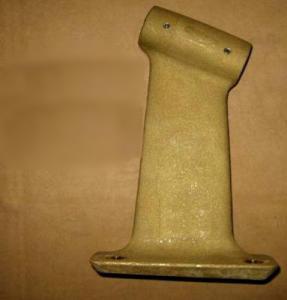Hey everyone,
I have a 1997 336. It has a 1" shaft and I put one zinc on it. Should I put more than one? I'm replacing it every two months because it is eroding so quickly in the marina.
I have briefly spoke to a few people that suggest a galvanic isolator should be installed. I currently do not have one.
I was also told to check my bonding wires to engine, thru hulls, strut bolts,keel bolts, and air conditioning unit.
On this sailboat, there is no bonding wire on the true hulls, no bonding wire on the strut bolts, no bonding wire that I can tell on the air condition unit. Should there be?
I do have bonding wire going to the three keel bolts, but it just terminated onto a bolt on the compression post.
The shore power cord is not laying in the water, and from what I can tell, the AC and DC is just going to a ground bus bar.
Are there any other 33-35' Hunters the same or similar to the lack of bonding items?
How can bond the shaft better or at all or reduce the eroding time of the zinc? The strut has a zinc and in the past 7 months, still looks in great shape.
I have a 1997 336. It has a 1" shaft and I put one zinc on it. Should I put more than one? I'm replacing it every two months because it is eroding so quickly in the marina.
I have briefly spoke to a few people that suggest a galvanic isolator should be installed. I currently do not have one.
I was also told to check my bonding wires to engine, thru hulls, strut bolts,keel bolts, and air conditioning unit.
On this sailboat, there is no bonding wire on the true hulls, no bonding wire on the strut bolts, no bonding wire that I can tell on the air condition unit. Should there be?
I do have bonding wire going to the three keel bolts, but it just terminated onto a bolt on the compression post.
The shore power cord is not laying in the water, and from what I can tell, the AC and DC is just going to a ground bus bar.
Are there any other 33-35' Hunters the same or similar to the lack of bonding items?
How can bond the shaft better or at all or reduce the eroding time of the zinc? The strut has a zinc and in the past 7 months, still looks in great shape.

